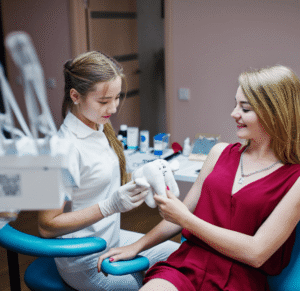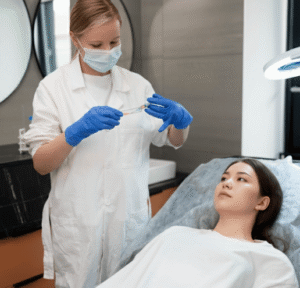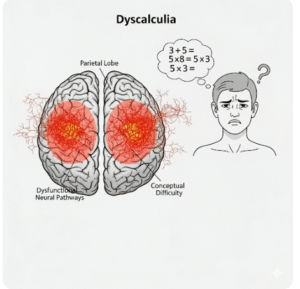Overview
Morquio Syndrome, also known as Mucopolysaccharidosis type IV (MPS IV), is a rare inherited metabolic disorder that affects the body’s ability to break down certain types of sugar molecules called glycosaminoglycans (GAGs). In Korea, where advanced pediatric genetics and metabolic disease centers are well established, Morquio Syndrome is diagnosed and managed through specialized care in major hospitals like Seoul National University Hospital, Asan Medical Center, and Samsung Medical Center. Early diagnosis and treatment are essential for improving quality of life and managing complications.
What is Morquio Syndrome?
Morquio Syndrome is a lysosomal storage disorder caused by a deficiency of specific enzymes (GALNS in MPS IVA or GLB1 in MPS IVB). These enzymes normally break down GAGs (keratan sulfate and chondroitin-6-sulfate). Without proper breakdown, these molecules accumulate in cells, tissues, and organs, leading to skeletal abnormalities, growth delays, and systemic complications. The disease typically presents in childhood and progresses over time.
Symptoms
Common signs and symptoms of Morquio Syndrome include:
- Abnormally short stature
- Skeletal deformities (knock knees, scoliosis, abnormal chest shape)
- Joint laxity and instability
- Coarse facial features
- Cloudy corneas and vision problems
- Hearing loss
- Heart valve abnormalities
- Breathing difficulties due to airway obstruction
- Normal or near-normal intelligence (unlike some other MPS disorders)
Causes
- Genetic mutation in the GALNS gene (MPS IVA) or GLB1 gene (MPS IVB)
- Autosomal recessive inheritance (both parents must carry the defective gene)
Risk Factors
- Family history of Morquio Syndrome or other lysosomal storage diseases
- Consanguineous marriages (rare but increases risk in genetic disorders)
- Carrier parents of MPS IV mutations
Complications
If left untreated, Morquio Syndrome can lead to:
- Severe skeletal deformities requiring surgery
- Respiratory problems, sleep apnea, or airway obstruction
- Heart disease due to valve dysfunction
- Mobility challenges leading to wheelchair dependence
- Reduced life expectancy in severe cases
Prevention
- Genetic counseling for families with a history of MPS IV
- Prenatal testing and carrier screening (available in Korea through advanced genetic labs)
- Early detection and supportive care to slow disease progression
Treatment Options in Korea
South Korea has advanced medical infrastructure for rare genetic diseases, with specialized pediatric metabolic disease centers and clinical trials access.
- Diagnosis
- Enzyme activity tests (to measure GALNS or GLB1 deficiency)
- Genetic testing to confirm the mutation
- Imaging (X-ray, MRI) for skeletal abnormalities
- Cardiac and pulmonary function assessments
- Medical Treatments
- Enzyme Replacement Therapy (ERT): Elosulfase alfa (approved for MPS IVA) is available in specialized centers in Korea.
- Supportive Medications: Pain management, respiratory support, and heart medications.
- Surgical & Supportive Interventions
- Orthopedic surgeries for skeletal deformities
- Cervical spine stabilization surgery (to prevent spinal cord compression)
- Corneal transplantation for severe vision issues
- Hearing aids or cochlear implants for hearing loss
- Rehabilitation & Long-Term Care
- Physiotherapy and occupational therapy for mobility support
- Regular follow-ups in multidisciplinary clinics (orthopedics, cardiology, pulmonology, ophthalmology)
- Psychosocial support for families and patients













